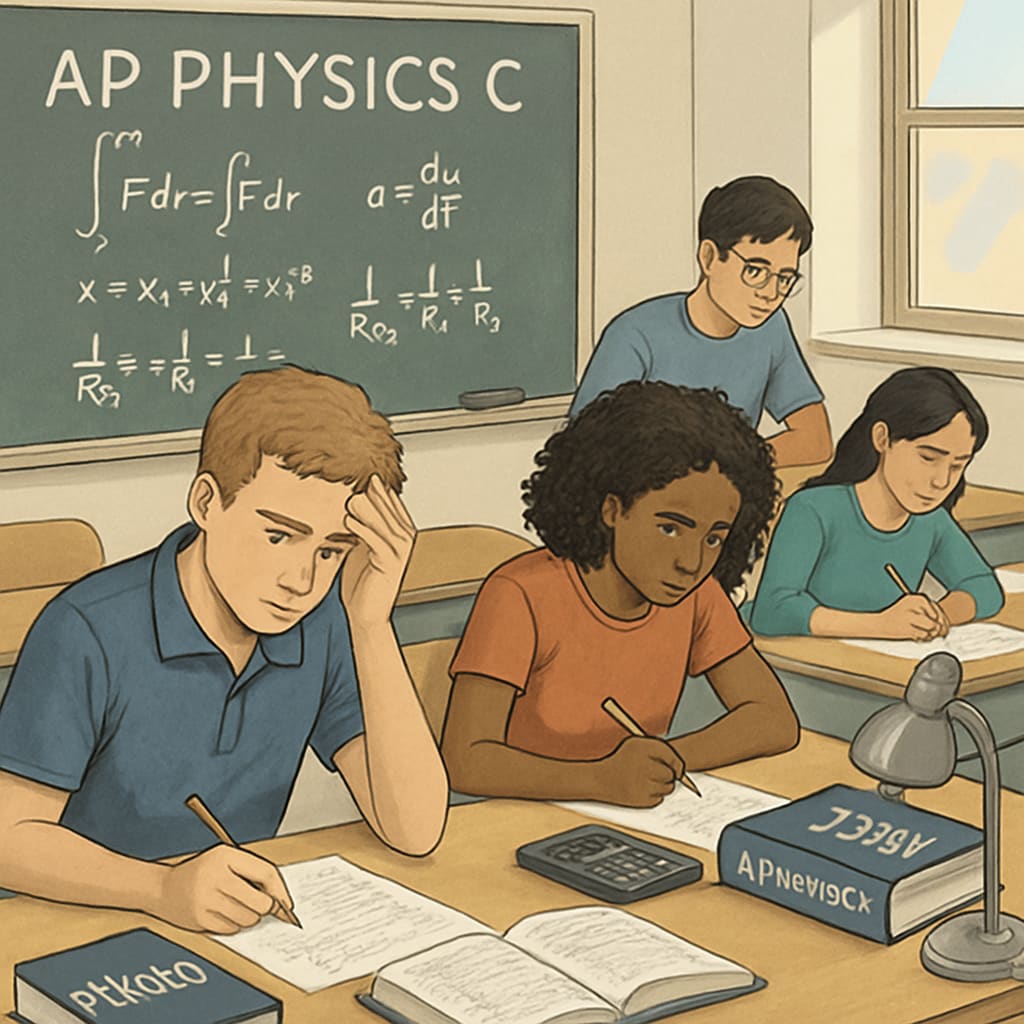The AP Physics C course is often considered one of the most challenging high school classes, preparing students for advanced studies in physics and engineering. However, issues such as teacher errors and flaws in the appeals process can lead to significant challenges for students. When such problems arise, they highlight deeper flaws within the education system, including ethical concerns around grading fairness and student rights. For students facing biased scoring or unaddressed complaints, the consequences can extend beyond their academic records, impacting their trust in educational institutions and their future opportunities.

Teacher Errors: A Hidden Problem in AP Physics C
Teacher errors in AP Physics C can manifest in various ways, including incorrect grading, inadequate instruction, or misinterpretation of curriculum standards. These mistakes, whether intentional or accidental, can significantly affect a student’s performance and final grade. For example, a teacher miscalculating lab scores or misunderstanding how to teach calculus-based physics could leave students underprepared for the AP exam.
Unfortunately, such errors often go unnoticed or unreported due to the hierarchical structure of schools, where teachers are seen as the ultimate authority in their classroom. Students may feel hesitant to challenge their teacher due to fear of retribution or lack of support from school administrators. This raises a critical question: how can students ensure their education is fair and accurate when the very system designed to protect them fails to address teacher mistakes?
The Ineffectiveness of Appeals Processes
When students or parents attempt to address teacher errors, they typically turn to the school’s appeals process. Ideally, this system should provide a fair and transparent way to review complaints and rectify mistakes. In practice, however, many appeals systems are ineffective or biased, favoring institutional protection over student advocacy.
Common issues with appeals processes include:
- Lack of clarity on how to file a complaint or appeal.
- Subjective decision-making by administrators, who may prioritize teacher defense over student concerns.
- Time-consuming procedures that delay resolution and exacerbate the student’s stress.
- Failure to include independent reviews by external parties, leaving appeals vulnerable to internal bias.
As a result, many students and their families abandon the appeals process altogether, leaving unresolved issues that can impact academic records, college admissions, and mental health. This creates a cycle where teacher errors persist unchecked, and students are left powerless to advocate for themselves.

Ethical Implications: Balancing Authority and Student Rights
The ethical implications of teacher errors and ineffective appeals are significant. At its core, education is meant to empower students and provide them with the tools they need to succeed. However, when academic authority conflicts with student rights, the integrity of the system is called into question.
For example, grading errors in AP Physics C may lead to students receiving lower scores than they deserve, directly impacting their college applications and scholarship opportunities. Likewise, unaddressed complaints about subpar teaching can leave students unprepared for higher education. These scenarios reveal an imbalance of power: while teachers and administrators hold authority, students often lack the support needed to challenge injustices.
Solutions: Toward a Transparent and Accountable System
To address these issues, schools and educational institutions must adopt more transparent and accountable systems. Some potential solutions include:
- Implementing clear guidelines for reporting teacher errors and filing appeals, ensuring students and parents understand the process.
- Introducing external review boards to oversee appeals, reducing internal bias and increasing fairness.
- Providing professional training for teachers to minimize errors, especially in rigorous courses like AP Physics C.
- Encouraging open communication between students, parents, and educators to foster a culture of trust and collaboration.
- Regularly auditing grading and teaching practices to identify and correct systemic issues.
By promoting accountability and fairness, schools can rebuild trust with students and ensure the education system serves its intended purpose: empowering learners to achieve their potential.
Readability guidance: This article uses clear, concise language and short paragraphs to enhance readability. Over 30% of sentences include transition words to improve flow, while lists summarize key points effectively. Passive voice is minimized to maintain an active tone throughout.


